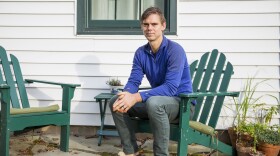Home to Penn State University’s main campus, State College and the larger Centre County area have been steadily growing in terms of population and economy. In recent years, the town has experienced an uptick in urbanization, with new high rises offering luxurious student housing. At the same time, a handful of local establishments have closed as more chain stores have arrived.
Some residents worry about those changes, while some others welcome the growth.
“I remember being here when I was a little girl growing up, and it was a lot smaller then than it is now. So I really have noticed the growth,” said Donna Richard, who grew up in the area and now lives in a nearby suburb.
According to the latest U.S. Census report, Centre County saw a 5.6 percent growth in population between 2010 and 2017, second only to Cumberland County as the fastest growth rate in the state.
This trend stands out especially compared to much of Western and of Central Pennsylvania, where counties have seen steady population loss and problems related to divestment.
The continued growth in population in the State College has brought with it new development and business. A new high-end apartment building opened for renters in 2017, and another high rise is under construction on the other side of downtown.
These changes signify a worrying trend for residents like Lesa Bird.
“It’s hard to see the small town turned into high rises,” Bird said. She lives in Gettysburg, but has a deep connection to the State College area. She owns a home in town and often goes to football games and other local events.
“No, I don’t want all the big McMansions, I don’t want all these sterile high rises. I want it to stay just the way it was,” she said.
Born and raised in State College, Eric DeShong said he’s glad to see more apartment buildings being built because it would mean more options for renters, as long as the new developments are not taking away the local charm.
“I think, as long as places that alumni and people [who] went to Penn state forty years ago – that had been here for a while – as long as those establishments can stay and aren‘t replaced by an H&M or something, I think that’s really important,” DeShong said.
Some of what DeShong laments is already happening. For instance, the All-American Rathskeller, a beloved downtown bar, was forced to close after 85 yearsrecently due to rising market rents.
The changes have also sparked more conversations about the increasing need for affordable housing, which has been compounded, for instance, by the loss of mobile homes in the area.
Some residents, though, see the benefits of growth. Lance Kennedy-Phillips moved to State College from the Chicago area about two years ago. He thinks the town is finding a nice balance.
“When people from outside of State College come here looking for some amenities — having those options attracts more people. I think it becomes a more diverse community,” he said. “We could walk around here and run into ten people that we’ve known from our neighborhood or from work or from school. You wouldn’t get that in a city like Chicago or somewhere larger.”
As the area continues to evolve, many residents hope the discussion of how their community should change remains open to everyone.






